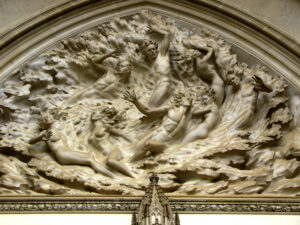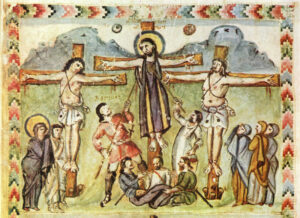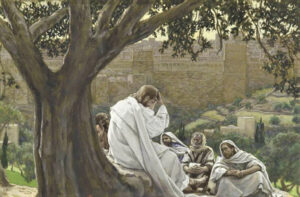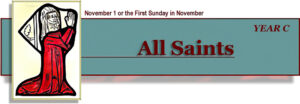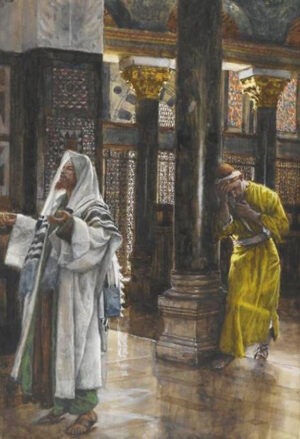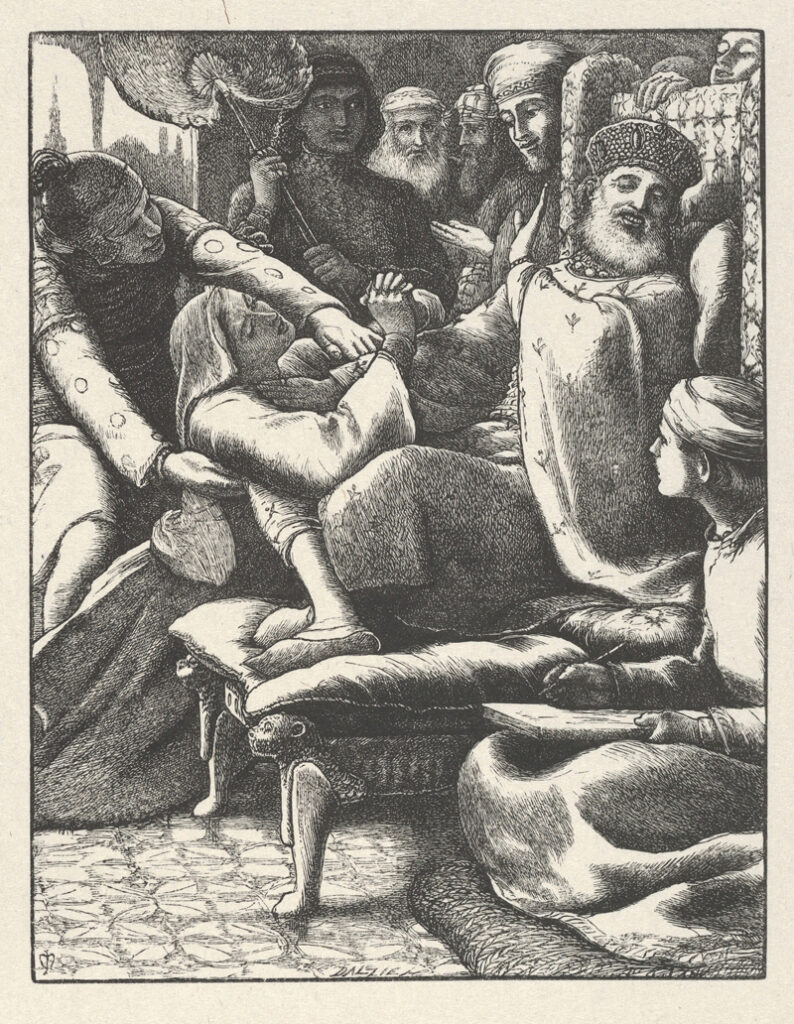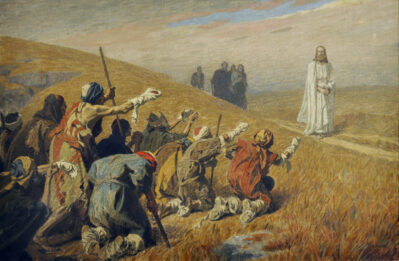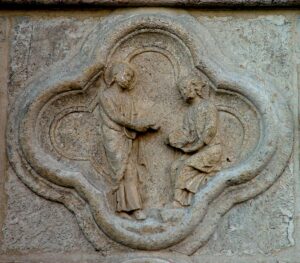Second Sunday in Advent
READINGS FOR THE COMING WEEK
- First reading
- Isaiah 11:1-10
- Psalm
- Psalm 72:1-7, 18-19
- Second reading
- Romans 15:4-13
- Gospel
- Matthew 3:1-12
The gospel from Matthew:
In those days John the Baptist appeared in the wilderness of Judea, proclaiming,”Repent, for the kingdom of heaven has come near.” This is the one of whom the prophet Isaiah spoke when he said, “The voice of one crying out in the wilderness: ‘Prepare the way of the Lord, make his paths straight.'”
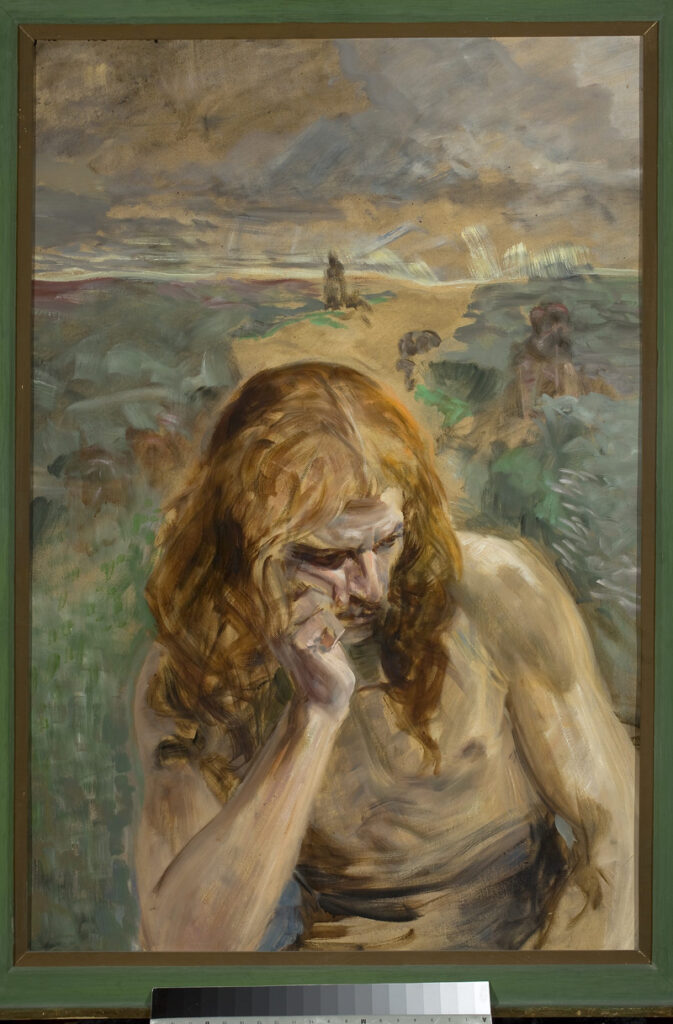
1911 Malczewski, Jacek
National Museum in Warsaw
Painting
Warsaw, Poland
https://diglib.library.vanderbilt.edu.
Now John wore clothing of camel’s hair with a leather belt around his waist, and his food was locusts and wild honey. Then the people of Jerusalem and all Judea were going out to him, and all the region along the Jordan, and they were baptized by him in the river Jordan, confessing their sins.
But when he saw many Pharisees and Sadducees coming for baptism, he said to them, “You brood of vipers! Who warned you to flee from the wrath to come? Bear fruit worthy of repentance. Do not presume to say to yourselves, ‘We have Abraham as our ancestor’; for I tell you, God is able from these stones to raise up children to Abraham.
Even now the ax is lying at the root of the trees; every tree therefore that does not bear good fruit is cut down and thrown into the fire. “I baptize you with water for repentance, but one who is more powerful than I is coming after me; I am not worthy to carry his sandals. He will baptize you with the Holy Spirit and fire. His winnowing fork is in his hand, and he will clear his threshing floor and will gather his wheat into the granary; but the chaff he will burn with unquenchable fire.”
Sermon:
Every year on a Sunday during Advent our gospel reading is the story about John the Baptist. On each pass we can gain new insights on its meaning. John had harsh things to say about the Pharisees and the Sadducees. One is that God will act soon. John is the first public witness. In Matthew he says “….one who is more powerful than I is coming after me ……..the chaff he will burn with unquenchable fire.” He also says “…..do not (just) say to yourselves ‘We have Abraham as our ancestor’ ” This makes Pastor Stevenson think about Paul’s letters as killers and the Law representing the wrath of God…………..


